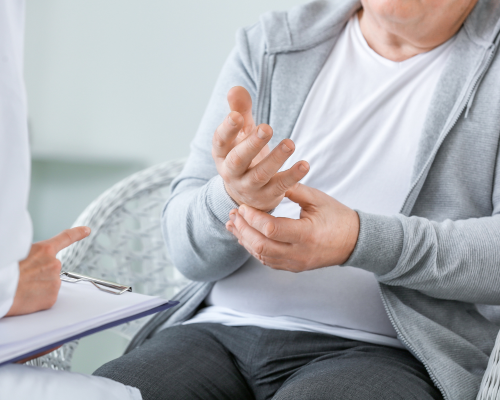Parkinson’s

Understanding Parkinson’s
At Manoshanti Neuropsychiatry Clinic, we understand the challenges faced by individuals living with Parkinson’s. With the right care and support, managing this condition is possible, enabling patients to maintain a good quality of life.
What Is Parkinson’s?
Parkinson’s is a progressive neurological condition that affects movement. It occurs due to the loss of dopamine-producing nerve cells in the brain, which play a key role in motor control.
Key Facts About Parkinson’s
- Parkinson’s primarily affects individuals over the age of 60, though early-onset cases can occur.
- It progresses gradually, with symptoms worsening over time.
- While there’s no cure, treatments can significantly improve symptoms and slow progression.
Symptoms of Parkinson’s
The symptoms of Parkinson’s can vary between individuals but are generally categorized into motor and non-motor symptoms.
Motor Symptoms
- Tremors: Shaking, typically starting in one hand, especially at rest.
- Bradykinesia: Slowness of movement, making simple tasks time-consuming.
- Rigidity: Stiffness in muscles, causing discomfort or pain.
- Postural Instability: Balance problems, leading to frequent falls.
Non-Motor Symptoms
- Sleep Disturbances: Insomnia or restless sleep.
- Mood Changes: Depression, anxiety, or apathy.
- Cognitive Decline: Memory issues or difficulty concentrating in advanced stages.
- Autonomic Dysfunction: Problems with blood pressure, digestion, or bladder control.
Causes and Risk Factors
The exact cause of Parkinson’s is unknown, but it’s believed to result from a combination of genetic and environmental factors.
Risk Factors Include:
- Age: The risk increases with age.
- Family History: Having a close relative with Parkinson’s may increase your risk.
- Environmental Exposure: Prolonged exposure to toxins or pesticides.
- Head Injuries: A history of traumatic brain injuries.
Diagnosis of Parkinson’s
There is no definitive test for Parkinson’s. Diagnosis is based on:
- Medical History: Reviewing symptoms and family history.
- Neurological Examination: Checking motor skills, reflexes, and balance.
- Imaging Tests: MRI or PET scans may be used to rule out other conditions.
How Manoshanti Neuropsychiatry Clinic Can Help
We offer a comprehensive, patient-centered approach to managing Parkinson’s, ensuring that you or your loved ones receive the best possible care.
Our Services Include:
- Personalized Treatment Plans:
- Tailored medications, such as Levodopa, to manage motor symptoms.
- Physical Therapy:
- Exercises to improve strength, flexibility, and balance.
- Occupational Therapy:
- Training for daily activities to maintain independence.
- Speech Therapy:
- Assistance with speech and swallowing difficulties.
- Lifestyle Counseling:
- Guidance on diet, exercise, and stress management.
- Advanced Therapies:
- Options like deep brain stimulation (DBS) for advanced cases.
Living with Parkinson’s
While living with Parkinson’s can be challenging, certain strategies can help:
- Regular Exercise: Activities like walking, swimming, or yoga can improve mobility and reduce stiffness.
- Healthy Diet: A balanced diet with adequate hydration supports overall health.
- Medication Adherence: Take prescribed medications as directed to control symptoms.
- Support Networks: Join Parkinson’s support groups to connect with others and share experiences.
Caregiver Support
At Manoshanti Neuropsychiatry Clinic, we recognize the vital role caregivers play in managing Parkinson’s. We provide guidance and resources to help caregivers navigate this journey effectively.
Why Choose Manoshanti Neuropsychiatry Clinic?
Our team of experts combines advanced medical knowledge with compassionate care to support patients and their families. We focus on improving the quality of life for those living with Parkinson’s through evidence-based treatments and ongoing support.
